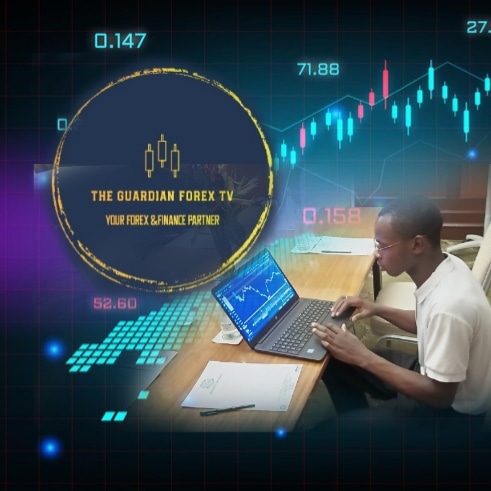The Guardian Forex TV
Introduction:
In the world of finance, few topics stir as much debate as forex trading. Often misconstrued as a form of gambling or a get-rich-quick scheme, it's time to debunk the myths surrounding this intricate financial landscape. In this article, we will delve into the deep facts that highlight why forex trading is an investment and not a gamble, providing our audience with a comprehensive perspective that separates fact from fiction.
Forex Trading: An Investment, Not a Gamble:
Understanding Forex as an Investment:
Forex, short for foreign exchange, is the global marketplace where currencies are traded. Unlike traditional gambling, forex trading is grounded in economic fundamentals, geopolitical events, and market analysis. Investors engage in the forex market to capitalize on currency fluctuations, making informed decisions based on thorough research and analysis.
Example: Consider a scenario where a trader observes a strengthening economy in a particular country, leading to an anticipated rise in its currency value. The trader strategically invests in that currency, expecting a return as economic conditions improve.
The Role of Education and Skill:
One of the key differentiators between forex trading and gambling is the role of education and skill. Successful forex traders invest time in learning the intricacies of the market, technical and fundamental analysis, risk management, and other crucial aspects. It's not merely luck; it's a skill-based endeavor.
Example: A skilled trader may use technical indicators to identify trends and analyze economic indicators to predict currency movements. This strategic approach sets forex trading apart from the random outcomes associated with gambling.
Risk Management in Forex Trading:
In gambling, the element of risk is often left to chance, and the odds are typically stacked against the participant. On the contrary, successful forex traders employ risk management strategies to protect their investments. This includes setting stop-loss orders, diversifying portfolios, and carefully managing leverage.
Example: A trader sets a stop-loss order to automatically sell a currency if it reaches a predetermined level, limiting potential losses. This disciplined approach contrasts with the unpredictable nature of many gambling activities.
Long-Term Perspective vs. Instant Gratification:
Unlike the allure of instant riches in gambling, forex trading emphasizes a long-term perspective. Successful traders understand that consistent profits require patience, discipline, and a focus on long-term goals rather than short-term gains.
Example: Rather than seeking quick wins, a prudent forex trader may adopt a strategy that aims for steady growth over time, aligning more with the principles of traditional investing.
Conclusion:
In conclusion, it's imperative to recognize forex trading as a legitimate form of investment that demands skill, education, and strategic planning. By understanding the fundamental differences between forex trading and gambling, investors can approach the market with a more informed and responsible perspective. Remember, success in forex trading is not about luck; it's about knowledge, discipline, and a commitment to the long-term growth of one's financial portfolio.
